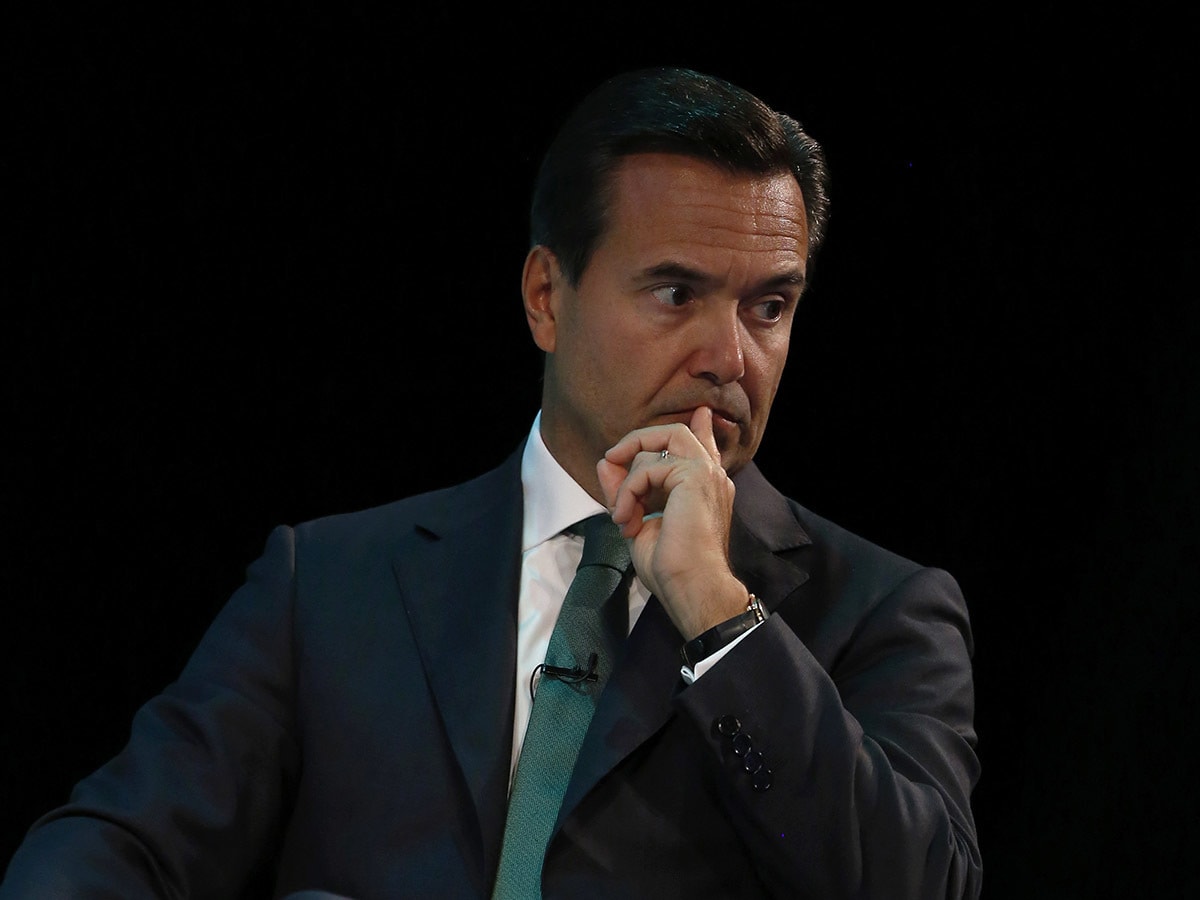In the 12 months to 25 September, Lloyds’ share price has fallen 55%, and the losses seem to be gaining speed. In the past six months, the stock has fallen circa 32.7%, while in the last 3 months alone it has seen a 21.82% drop.
Lloyds’ share price just hasn't been able to rally since mid-March when the coronavirus outbreak saw the stock fall off a cliff-edge, a trend seen across the banking sector.
With Lloyds’ share price finding fresh lows, is the stock a bargain or does the price reflect an inoperable downwards trend?
What do the past 5 years tell investors about Lloyds' share price?
Investors might chalk recent losses up to the outbreak, but over the past five years, Lloyds’ share price is down over 67%. In fact, over the half decade, it has gained in just two calendar years: 2017 and 2019.
Lloyds’ share price performance per year since 2015
| 2020 (up to 25 September) | -60.92% |
| 2019 | 20.54% |
| 2018 | -23.82% |
| 2017 | 8.88% |
| 2016 | -15.07% |
| 2015 | -2.56% |
2019’s outsized performance could give investors reason to hope. That year saw Lloyds’ share price recoup most of the losses racked up in 2018 when Brexit weighed on the economy. If a similar feat happens in 2021 post-coronavirus, then Lloyds’ current share price could be a bargain.
However, looking at Lloyds’ share price performance alone doesn't provide the complete picture. Banking stocks are typically favoured by investors for their dividend payments so, to truly assess Lloyds’ performance, it's worth looking at total shareholder return. Simply Wall Street has done the maths:
"[Total shareholder return] is a more complete return calculation because it accounts for the value of dividends (as if they were reinvested), along with the hypothetical value of any discounted capital that have been offered to shareholders. Lloyds Banking Group’s TSR was a loss of 56% for the 5 years. That wasn’t as bad as its share price return, because it has paid dividends."
Simply Wall Street’s assessment makes for stark reading, especially as the investment website also notes that Lloyds’ earnings per share have declined by 26% per year. A trailing profit to earnings multiple of 61.8x might indicate investors think Lloyds has a bright future, but its recent performance is sobering.
How Lloyds’ share price compares to other UK banks
Lloyds’ share price performance is like that of Barclays. Over the past 5 years, Barclays’ share price has fallen over 60%, with its peaks and troughs roughly mirroring Lloyds’. In stark contrast is HSBC's share price, which saw a prolonged ascent between the start of April 2016, where it was trading at 418p, to the start of July 2018, where it hit a high of 791p.
Over a one-year period, Barclays’ share price has proven more resilient than Lloyds, largely thanks to its investment banking operations that aren't dependent on interest rates to make money. Unlike Barclays', Lloyds position as the UK's biggest lender and lack of diversification means it is particularly vulnerable to historically low interest rates.
What do the next 5 years hold for Lloyds’ share price?
As a bellwether for the UK economy, Lloyds’ share price moves based on events outside of the bank’s control. In the past five years Lloyds has had to contend with the coronavirus, interest rate cuts, the PPI scandal and Brexit. However, during that time it has also become more cost-efficient and has invested in digital technology under the leadership of outgoing CEO António Horta-Osório.
Whoever replaces Horta-Osório in the top spot will inherit a well-capitalised and profitable business — a good place to be considering the upcoming challenges the UK economy will face. Yet, if Lloyds’ share price is to flourish rather than simply survive in the next five years, Horta-Osório’s replacement must diversify the bank’s income streams.
It’s also worth remembering that historical performance — as most risk warnings will tell us — isn’t a reliable indicator of future performance. The issues that have been dogging Lloyds’ share price, including Brexit, the coronavirus and a lack of diversification, could be resolved in 2021. If that happens, Lloyds’ long-term share price slump could see a quick reversal.
Disclaimer Past performance is not a reliable indicator of future results.
CMC Markets is an execution-only service provider. The material (whether or not it states any opinions) is for general information purposes only, and does not take into account your personal circumstances or objectives. Nothing in this material is (or should be considered to be) financial, investment or other advice on which reliance should be placed. No opinion given in the material constitutes a recommendation by CMC Markets or the author that any particular investment, security, transaction or investment strategy is suitable for any specific person.
The material has not been prepared in accordance with legal requirements designed to promote the independence of investment research. Although we are not specifically prevented from dealing before providing this material, we do not seek to take advantage of the material prior to its dissemination.
CMC Markets does not endorse or offer opinion on the trading strategies used by the author. Their trading strategies do not guarantee any return and CMC Markets shall not be held responsible for any loss that you may incur, either directly or indirectly, arising from any investment based on any information contained herein.
*Tax treatment depends on individual circumstances and can change or may differ in a jurisdiction other than the UK.
Continue reading for FREE





